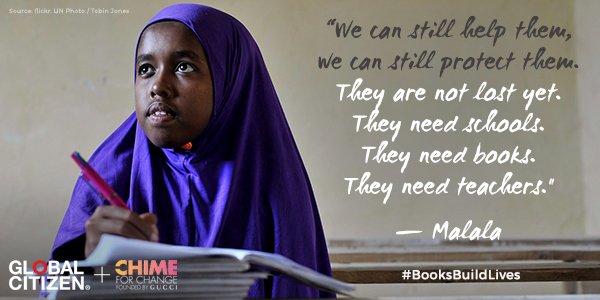There is an urgent need to fund emergency education for displaced children everywhere. In February 2016, world leaders convened in London, UK to make funding pledges to support the 13.5 million Syrians affected by conflict and have raised in excess of $10 billion. This is an excellent first step in addressing the impact of humanitarian crises on the world’s population. However, Syria is not alone.
The Malala Fund and UN groups called for donor governments to commit at least $1.4 billion of the total raised specifically for education. Even these funds are a stepping stone and won’t reach most of the 65 Million children outside of Syria in countries such as Niger, Nigeria, South Sudan, and Afghanistan, who have also been affected by war, displacement, terrorism and natural disasters, and are going without schooling. Over half of these children are girls.
Children’s lives and opportunities are shaped by their education, however, our response to humanitarian emergencies is doing little to protect children’s right to learn. Last year 2015, less than 2% of humanitarian aid went toward education for displaced children. This is insufficient to address the funding need of at least $8 Billion a year to provide adequate, quality education services to children affected by emergencies.
In July 2015, world leaders met in Oslo, Norway and agreed to establish a global humanitarian funding platform for education in emergencies. 2016 is the year to put this into action and change the story for children who have already lost so much, but the window to do so is narrowing.
It is our responsibility as Global Citizens to create the world where education is a priority for every child, everywhere and particularly in humanitarian crises.
That’s where you come in. Together, we must raise our voices to ensure that world leaders commit new funds to adequately fund quality education services and infrastructure for children around the world. Less than 2% of humanitarian aid is simply not enough in the longer term when we know that books can build lives.
Ahead of the World Humanitarian Summit in May 2016, sign our petition and call on World Leaders to commit new funding for education in emergencies through a global humanitarian funding platform.






